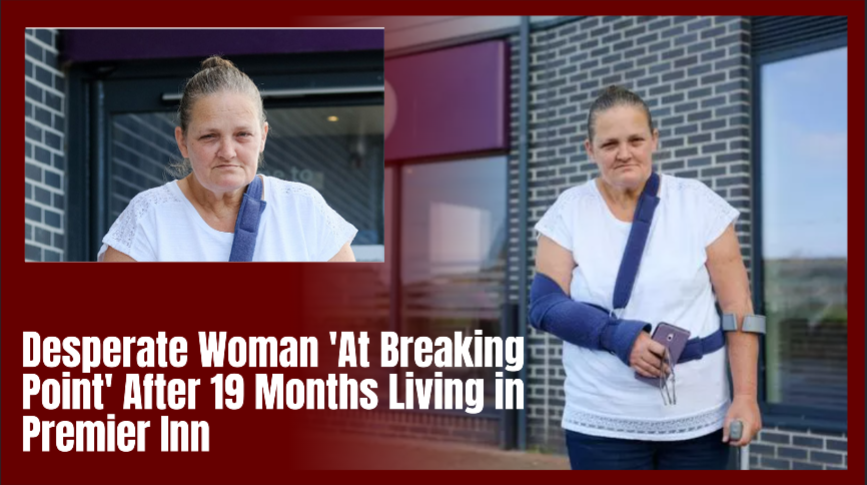
Annette Wilkinson, 50, first checked into the Premier Inn on the outskirts of Bude, Cornwall, 19 months ago after her relationship broke down and she had nowhere else to go. Since then, she has been living out of her suitcase, moving rooms every two weeks, and struggling with depression and a sense of hopelessness.
Annette volunteers at a charity shop and knows every corner of the hotel. Her meals are limited to what she can make with a kettle, such as sandwiches and fruit salads. She told DevonLive, “It’s heartbreaking, and I’ve had enough. I can’t keep living like this, and I see no way out.” Adding to her troubles, Annette’s four rescue cats remain in foster care far longer than expected. “The rescue center has been very accommodating, but they can’t keep the cats forever,” she said.

In her hotel room, Annette has only a kettle and a TV, so she must buy fresh food daily and make simple meals. “I’ve been here 19 months and only had one home-cooked meal on New Year’s Day, thanks to a kind Premier Inn worker who invited me to his family’s home,” she said. Moving rooms every two weeks has given her an unwanted tour of the entire hotel. “Housing officers have told me my case fell through the cracks. I tried to call my housing officer for ten weeks without getting a response,” she said. “Now, my new housing officer never returns my calls. Mistakes on my application form have affected my chances of getting social housing.”
Annette feels stuck and very distressed: “I don’t know what to do. I’m so depressed.”
Many people in Cornwall are struggling with housing issues, facing problems like evictions and high rents. Cornwall Council recognizes these difficulties. A spokesperson said, “We understand the tough situation some residents are in due to the housing shortage. We are dedicated to helping those facing homelessness.”
The spokesperson added that there is a high demand for housing, including council-owned and rented properties. They provide support to those in emergency accommodation to help them find long-term homes. “The Council has a duty to provide temporary housing to certain households and works with them on a Personalised Housing Plan. This plan includes steps to secure other housing and support from the Council, such as help with property bidding or a rent advance.”
Over the past four years, the number of households needing emergency accommodation has risen by about 240 percent to 851, while over 20,000 households are on the social housing register.




